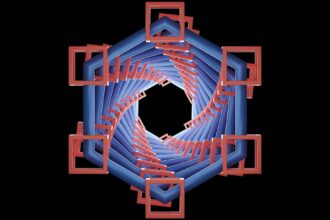In a world overflowing with stimuli, the ability to focus your attention has become a vital skill. The attention effect refers to how your focus can shape your perception of reality, influencing what you notice and how you interpret the information around you. This phenomenon is not merely a psychological curiosity; it has profound implications for your daily life, from the way you interact with others to how you process information in your environment.
Understanding the attention effect can empower you to navigate your surroundings more effectively, enhancing both your personal and professional experiences. As you delve deeper into the intricacies of attention, you’ll discover that it is not a singular entity but rather a complex interplay of cognitive processes. Your attention can be directed consciously or unconsciously, and it can shift rapidly in response to various stimuli.
This dynamic nature of attention plays a crucial role in shaping your perceptions, guiding your thoughts, and ultimately influencing your actions. By exploring the multifaceted relationship between attention and perception, you can gain insights into how to harness this power for improved decision-making and emotional well-being.
Key Takeaways
- Attention plays a crucial role in shaping our perception of the world around us.
- Multitasking can negatively impact our perception and cognitive abilities.
- Attention is closely linked to memory, influencing what we remember and how we recall information.
- Selective perception is influenced by our attention, shaping our understanding of the world.
- Improving attention through strategies like mindfulness can lead to better perception and cognitive abilities.
The Role of Attention in Perception
Attention serves as a filter through which you experience the world. It determines what information reaches your conscious awareness and what gets relegated to the background. When you focus on a specific task or object, your brain prioritizes that information, allowing you to process it more deeply.
This selective nature of attention means that your perception is not a direct reflection of reality but rather a curated experience shaped by where you direct your focus. For instance, when you’re engrossed in reading a book, the words on the page become your primary focus, while the sounds of the world around you fade into the background. This selective attention allows you to immerse yourself in the narrative, enhancing your understanding and enjoyment of the material.
Conversely, if your attention is divided—perhaps by notifications from your phone or conversations happening nearby—your perception of the text may suffer. You might miss key details or fail to grasp the overall message, illustrating how crucial attention is in shaping your perceptual experience.
How Focus Changes Our Perception

The act of focusing can dramatically alter how you perceive an object or situation. When you concentrate on a particular aspect of an experience, it can enhance certain features while diminishing others. For example, if you’re admiring a piece of art, focusing on the colors may lead you to appreciate the vibrancy and emotional impact of the work.
However, if your attention shifts to the brushstrokes or the artist’s technique, you may gain a different understanding of the piece altogether. This phenomenon extends beyond visual experiences; it also applies to auditory and tactile perceptions. When you’re listening to music, for instance, focusing on the lyrics can evoke specific emotions tied to the song’s message, while concentrating on the melody may lead you to appreciate its complexity and rhythm.
Your focus acts as a lens through which you interpret sensory information, highlighting certain elements while obscuring others. This selective enhancement underscores the importance of being mindful about where you direct your attention.
The Impact of Multitasking on Perception
| Participant | Task 1 Performance | Task 2 Performance | Perception of Multitasking |
|---|---|---|---|
| Participant 1 | 85% | 70% | Decreased focus |
| Participant 2 | 90% | 65% | Increased stress |
| Participant 3 | 75% | 80% | Overwhelmed feeling |
In today’s fast-paced world, multitasking has become a common practice. However, this tendency to juggle multiple tasks simultaneously can have detrimental effects on your perception. When you attempt to divide your attention among several activities—such as checking emails while participating in a meeting—you may find that your ability to process information diminishes significantly.
Research has shown that multitasking can lead to cognitive overload, making it challenging for you to retain information or fully engage with any single task. Moreover, multitasking can create a fragmented perception of reality. Instead of experiencing events in their entirety, you may only grasp superficial aspects of each task at hand.
This fragmented approach can hinder your ability to make connections between ideas or recognize patterns in information. As a result, you may miss out on valuable insights that could enhance your understanding or decision-making capabilities. Recognizing the limitations of multitasking can encourage you to adopt more focused approaches that allow for deeper engagement with each task.
Attention and Memory
Your memory is intricately linked to your attention. When you pay close attention to information, you’re more likely to encode it effectively into your long-term memory. This connection highlights the importance of focus in learning and retention.
For instance, if you’re studying for an exam and find yourself distracted by external stimuli, the likelihood of remembering key concepts diminishes significantly. Conversely, when you create an environment conducive to concentration—free from distractions—you enhance your ability to absorb and recall information later. Additionally, attention influences how memories are formed and retrieved.
When you focus on specific details during an experience, those details are more likely to be stored in your memory. However, if your attention is divided or unfocused, you may struggle to recall those details later on. This interplay between attention and memory underscores the importance of being present in each moment, as it directly impacts your ability to learn from experiences and retain valuable information.
Attention and Selective Perception

Selective perception refers to the tendency to perceive what aligns with your expectations or interests while ignoring contradictory information. Your attention plays a pivotal role in this process; it guides what you notice and what remains unnoticed. For example, if you’re passionate about a particular topic—such as environmental conservation—you may be more attuned to news articles or discussions related to that subject while overlooking opposing viewpoints or unrelated issues.
This selective nature of perception can have both positive and negative consequences. On one hand, it allows you to hone in on areas of interest and expertise, fostering deeper understanding and engagement. On the other hand, it can lead to confirmation bias, where you only seek out information that reinforces your existing beliefs while dismissing alternative perspectives.
Being aware of this tendency can help you cultivate a more balanced approach to information consumption, encouraging open-mindedness and critical thinking.
The Influence of Attention on Decision Making
Your decision-making processes are heavily influenced by where you direct your attention. When faced with choices, focusing on specific aspects—such as potential outcomes or risks—can shape your preferences and ultimately guide your decisions. For instance, if you’re considering a job offer, paying close attention to salary and benefits may lead you to prioritize financial security over job satisfaction or company culture.
Moreover, distractions can cloud your judgment and lead to impulsive decisions. When you’re overwhelmed by competing demands for your attention, it becomes challenging to weigh options thoughtfully.
By cultivating focused attention during decision-making processes, you can enhance clarity and make choices that align with your values and long-term goals.
Attention and Emotional Perception
Your emotional responses are closely tied to where you direct your attention.
Conversely, if your attention gravitates toward negative events or worries about the future, it can lead to feelings of anxiety or sadness.
This connection between attention and emotional perception highlights the importance of mindfulness in managing your emotional well-being. Additionally, attention influences how you interpret emotional cues from others. When you’re fully present in social interactions, you’re better equipped to pick up on nonverbal signals such as body language and facial expressions.
This heightened awareness allows for more empathetic responses and deeper connections with others. By consciously directing your attention toward positive interactions and emotional cues, you can foster healthier relationships and enhance your overall emotional intelligence.
The Connection Between Attention and Cognitive Load
Cognitive load refers to the mental effort required to process information and perform tasks. Your attention plays a critical role in managing cognitive load; when you’re focused on a single task, you’re better able to allocate mental resources efficiently. However, when distractions arise or when multitasking becomes necessary, cognitive load increases significantly, leading to potential overwhelm and decreased performance.
Understanding this connection can help you develop strategies for managing cognitive load effectively. For instance, breaking tasks into smaller segments allows for focused attention on each component without becoming overwhelmed by the entirety of the project. Additionally, creating an organized environment free from distractions can help reduce cognitive load and enhance overall productivity.
Strategies for Improving Attention and Perception
Improving your attention and perception requires intentional practice and mindfulness techniques. One effective strategy is setting specific goals for each task at hand; by defining what you want to achieve during a focused session, you’re more likely to direct your attention purposefully. Additionally, incorporating regular breaks into your routine can help refresh your mind and prevent cognitive fatigue.
Mindfulness meditation is another powerful tool for enhancing attention and perception. By training yourself to observe thoughts without judgment, you cultivate greater awareness of where your focus lies at any given moment. This practice not only improves concentration but also fosters a deeper understanding of how external stimuli influence your perceptions.
Harnessing the Power of Focus for Better Perception
In conclusion, understanding the intricate relationship between attention and perception empowers you to navigate life with greater awareness and intention. By recognizing how focus shapes your experiences—impacting everything from memory retention to emotional responses—you can cultivate strategies that enhance both personal growth and decision-making capabilities. As distractions continue to proliferate in our fast-paced world, honing your ability to direct attention purposefully will serve as a valuable asset in achieving clarity and fulfillment in all aspects of life.
By embracing mindfulness practices and prioritizing focused engagement with tasks and relationships, you’ll unlock new levels of insight and understanding that enrich your daily experiences. Ultimately, harnessing the power of focus allows you not only to perceive reality more clearly but also to shape it according to your values and aspirations.
In exploring the fascinating ways in which attention can warp our perception of reality, it’s essential to consider the psychological underpinnings that drive this phenomenon. A related article on this topic can be found on Unplugged Psychology, which delves into the cognitive processes that influence how we perceive the world around us. This article provides insights into how selective attention can alter our experiences and shape our understanding of reality. For a deeper dive into these concepts, you can read more about it on their website.
WATCH THIS! The Shocking Truth About Perception Loops
FAQs
What is attention?
Attention is the cognitive process of selectively concentrating on a particular aspect of information while ignoring other perceivable information. It is a crucial aspect of perception and cognition.
How does attention warp reality?
Attention can warp reality by influencing what we perceive and remember. Our attention can be biased towards certain stimuli, leading us to focus on specific details while ignoring others. This can result in a distorted perception of reality.
What are some examples of how attention warps reality?
One example of how attention warps reality is in the phenomenon of inattentional blindness, where individuals fail to perceive a fully visible object because their attention is focused elsewhere. Another example is the selective attention to certain information, which can lead to biased perceptions and memories.
How does attention affect memory?
Attention plays a crucial role in memory formation. What we pay attention to influences what we remember. Our attention can selectively enhance the encoding and retrieval of certain information, leading to memory distortions and biases.
Can attention be consciously controlled to avoid warping reality?
While attention is influenced by both conscious and unconscious processes, individuals can practice mindfulness and cognitive strategies to become more aware of their attentional biases and reduce the impact of attention on warping reality. However, complete control over attention is not always possible.




